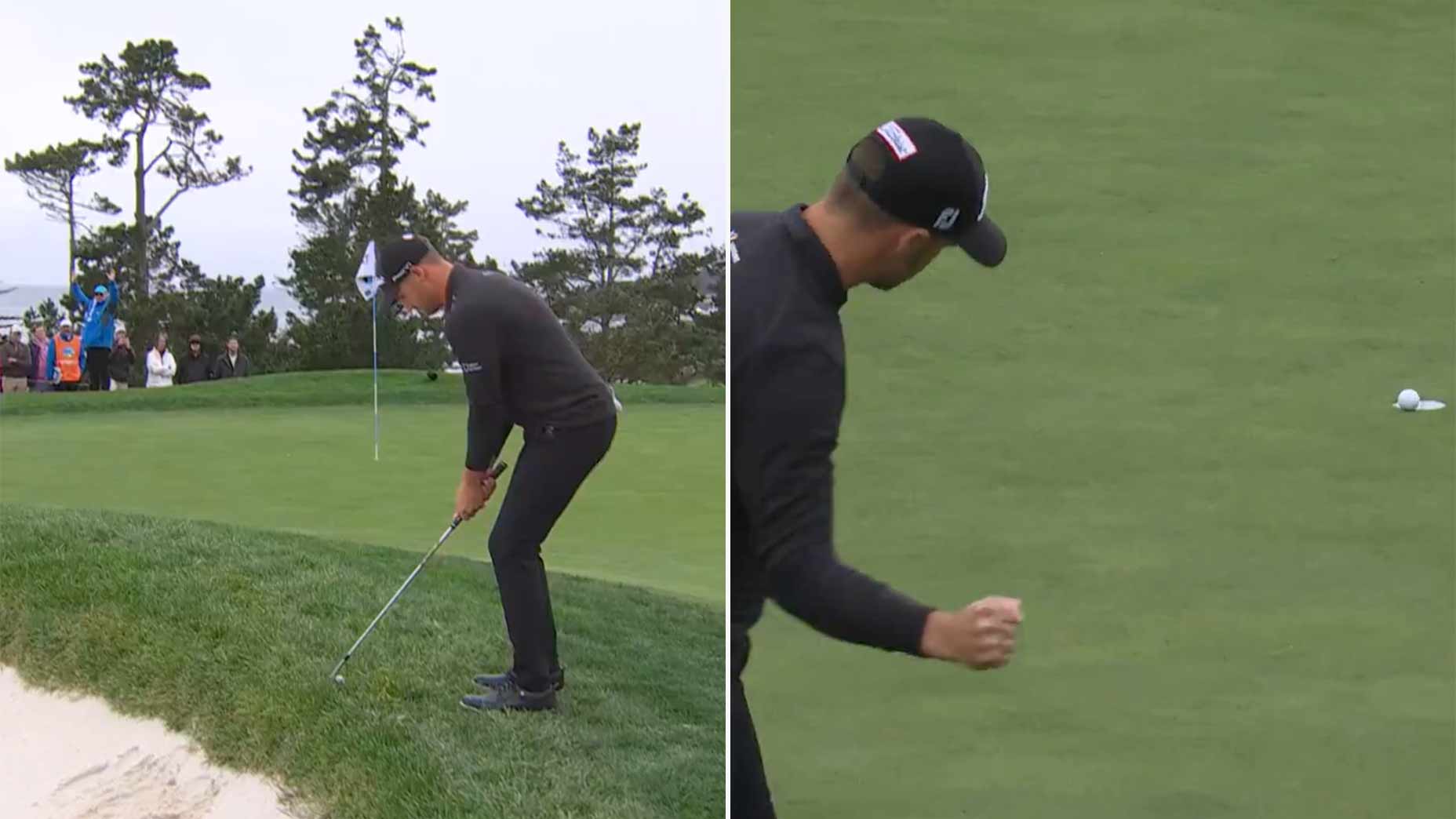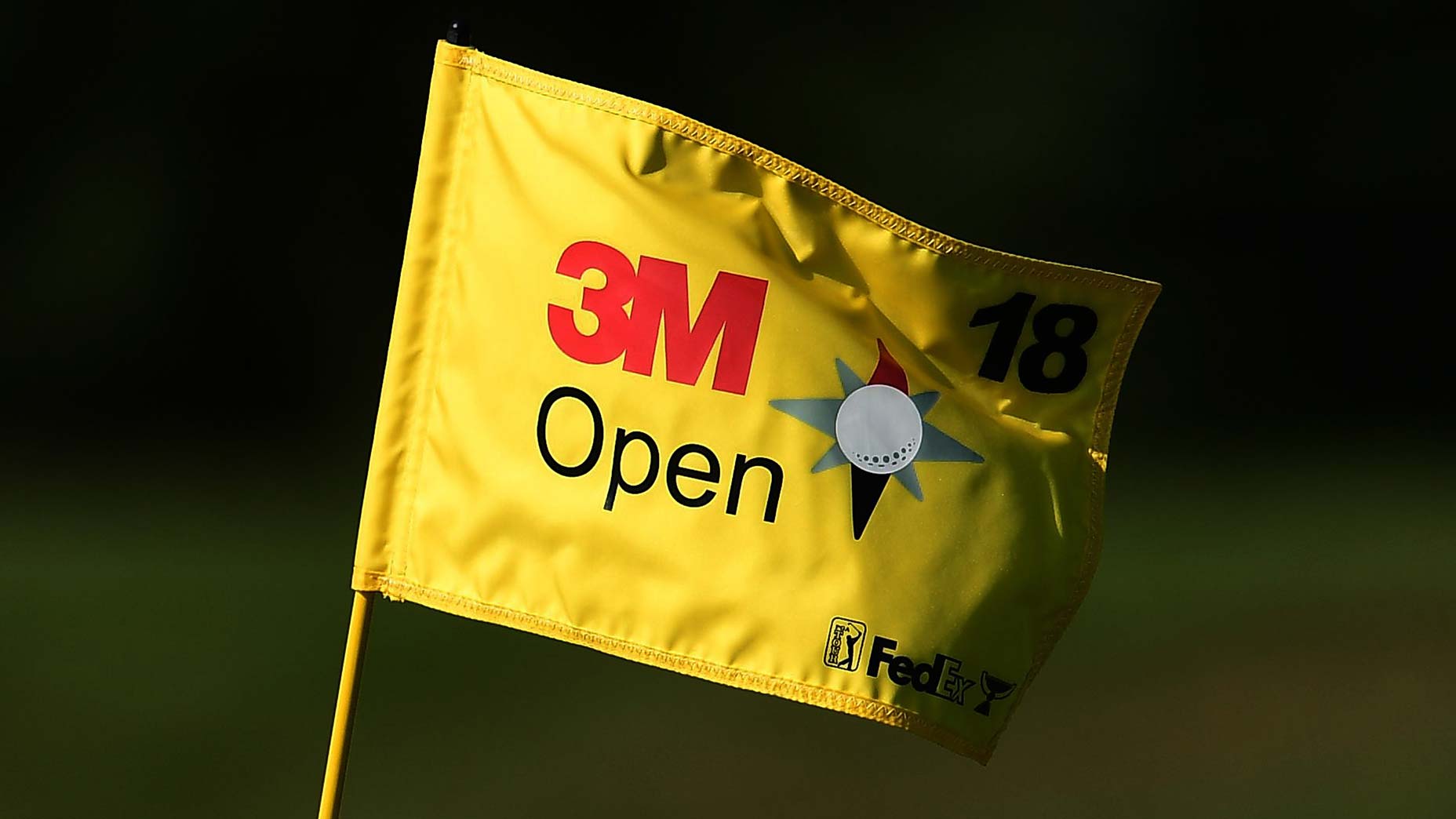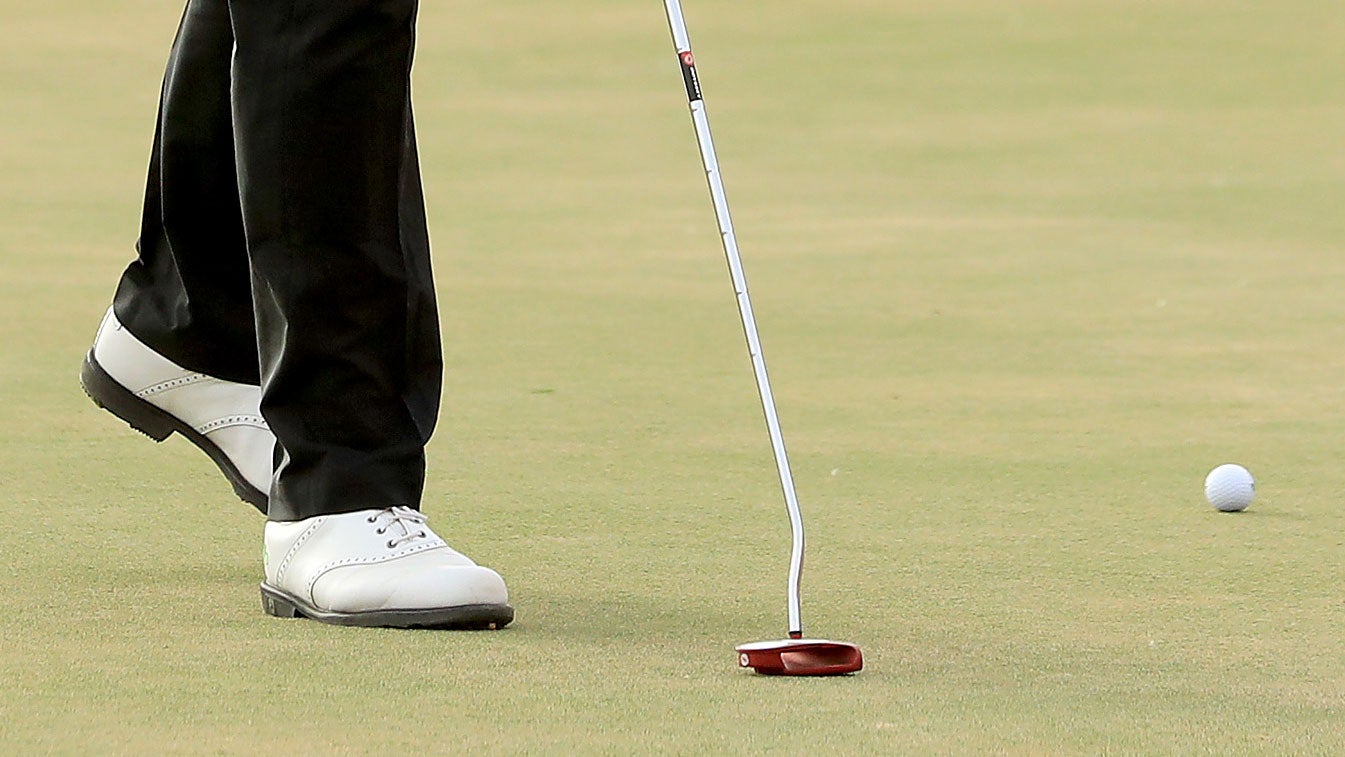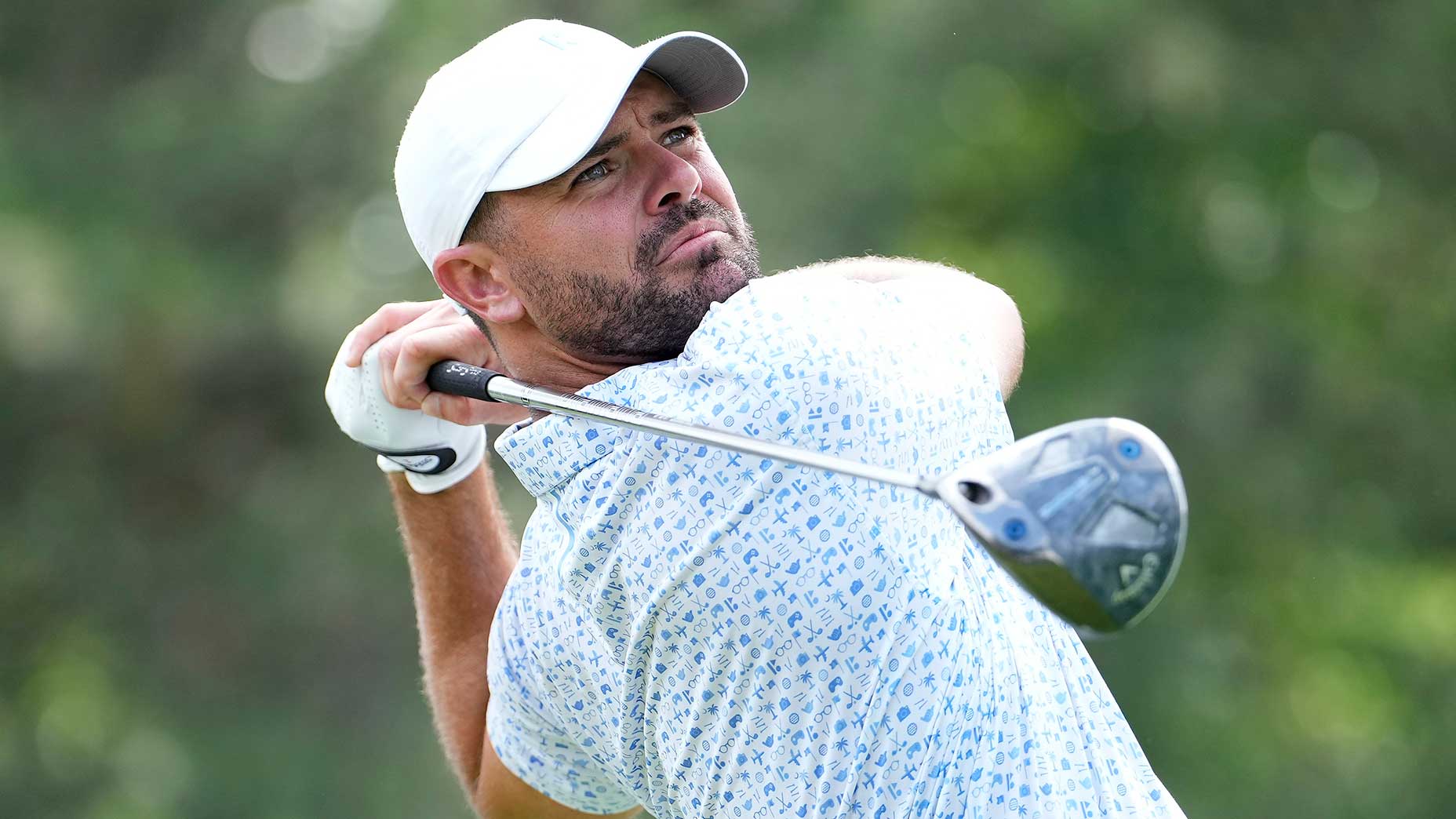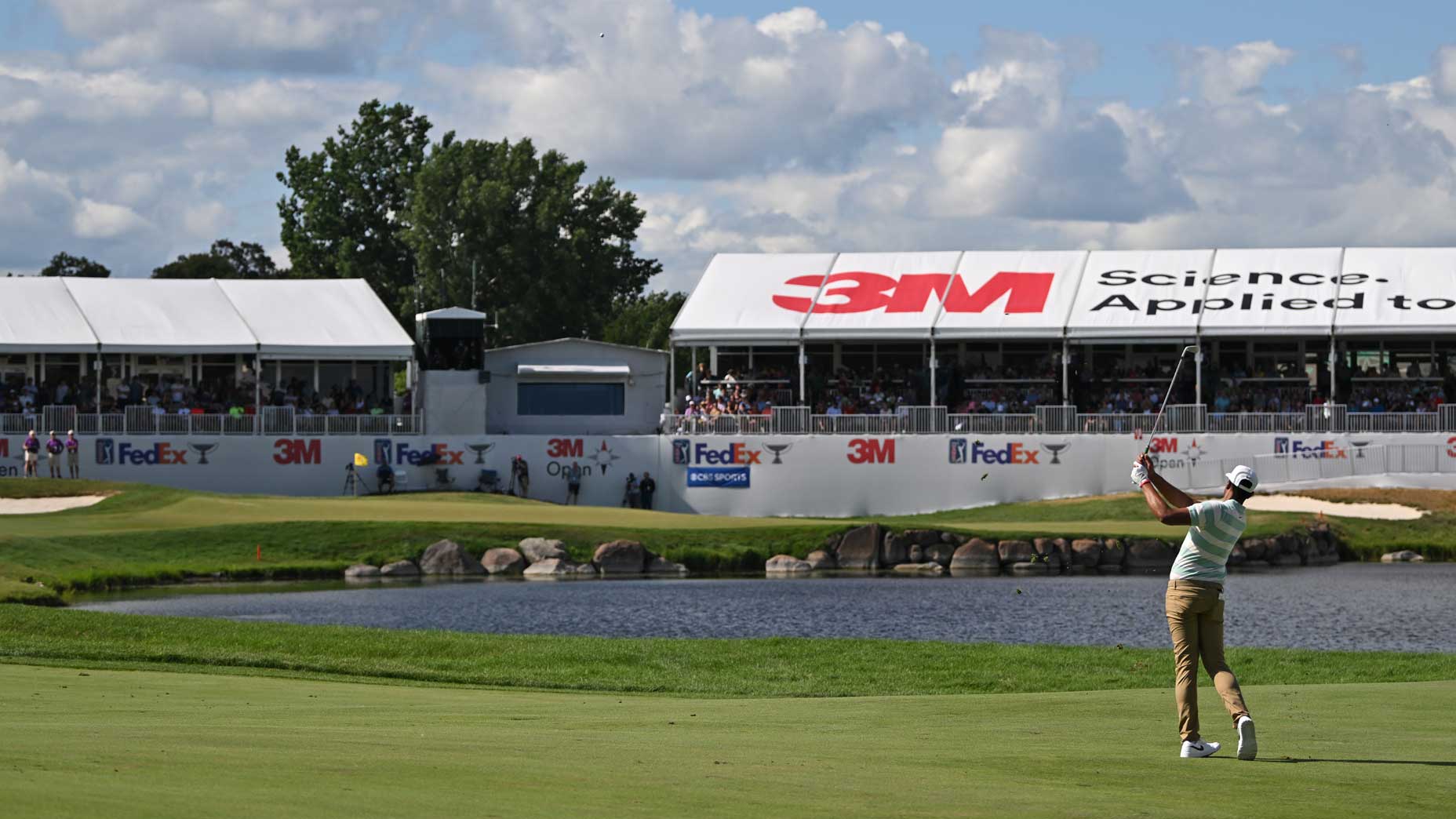Rarely used rule helps keep Wyndham Clark’s Pebble record round alive
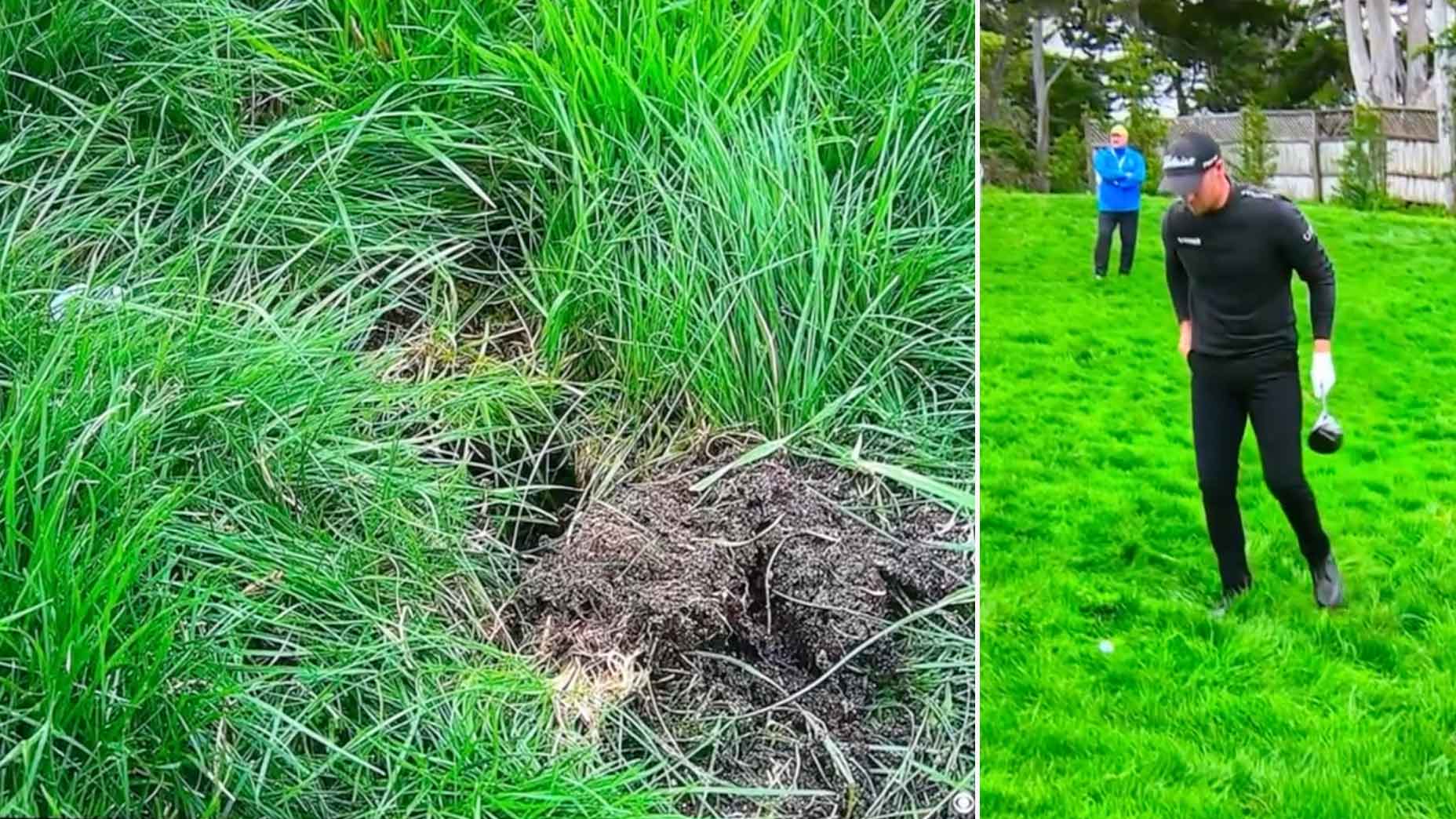
Wyndham Clark's initial lie on 16 was terrible. Then he got relief.
CBS Sports
Wyndham Clark made history Sunday at Pebble Beach, but not without a little help from the rules.
To recap, Clark torched the front nine with his putter, making four putts over 20 feet — more than 150 feet of putts in all — and two eagles on his way to tying the front-nine record of 28. He birdied 10 and 11, then hit a lefty chip to save bogey on 12 before adding two more birdies on 13 and 14.
That put him at 11 under for the day, one clear of the single-round tournament record at the AT&T Pebble Beach Pro-Am and four para away from tying the competitive course record of 11-under 61.
Clark also had jumped from starting six shots behind the lead to start the day to two shots clear of the field. Complicating matters was the potential for Sunday’s final round to be washed out entirely with an impending storm, meaning Saturday could be the final round.
Clark needed to keep his foot down if he was actually going to win.
But then he pulled his 3-wood off the tee on 16. His ball flew through the fairway, over the second cut and into a native area with some of the longest rough on the course.
The ball took one bounce and disappeared into the grass.
When the CBS broadcast cut to Clark about to play his second shot to the par-4, he was finishing up a relief drop. His ball was clearly visible, sitting up in the heavy rough.
The ball had bounced, right? So he couldn’t have possibly taken embedded ball relief.
CBS on-course reporter Mark Immelman reported the ball was “plugged,” but it couldn’t have been embedded because it bounced first. It would have just been an awful break, but luckily, Clark had two other circumstances that helped him out.
The first was temporary water in the area of the ball. But the allowance by which Clark ended up taking relief was a large burrowing animal hole next to his ball.
“With a burrowing animal hole — or the remnants of the burrowing animal hole — it does count not only for the lie of ball, but your area for intended swing,” PGA Tour rules official Mark Dusbabek explained on CBS. “So finding your nearest point of relief and then your one club length can really be an advantage for your situation.”
Dusbabek also said video operator Orlando Pope had already relayed to the official on the ground that Clark’s ball was not embedded to ensure Clark didn’t take an improper drop under those rules.
“It was from an animal burrowing hole,” Clark confirmed after the round. “We were right on the edge of it to where it was in my way and I was essentially in the start of that animal burrowing hole.
“I brought the officials over to make sure because obviously the ground’s very saturated. I asked him, I said, ‘What do you think this is?’ He said, ‘Yeah, that does not look like a divot or any sort of footprint.’ It was definitely something that was going under the surface.”
As Dubabek explained, because Clark was taking relief from an animal hole, Rule 16.1 allows for you to take relief for your intended swing and stance, meaning Clark could avoid standing on the hole all together.
The result was Clark drew a much cleaner lie in the native area and had a much better chance of getting his ball close. And just like a bunch of his other iron shots Saturday, Clark did get it close, knocking his wedge from 125 to just 10 feet.
Unfortunately for Clark, his birdie putt stopped just five inches from the cup. He made par and then birdied 18 for 60, breaking the Pebble Beach course record by one and the 18-hole tournament record by two. But that par would have been far more difficult had he not gotten a drop.
“It would have been pretty tough,” Clark said of the lie. “It definitely would have been a decision to decide, you know, do we — how aggressive do we be going at the flag or more towards the center of the green or the right side of the green? I think I still could have advanced it to probably the front of the green.”

